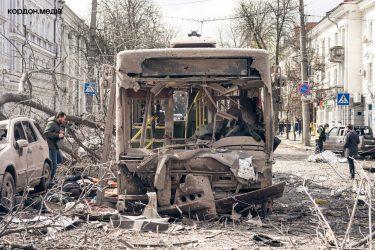Pyatt: Put a positive spotlight on the opportunities that Greece represents
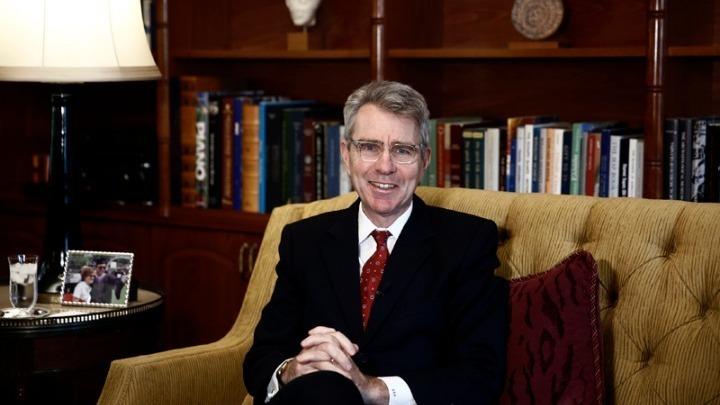
US Ambassador to Greece Geoffrey Pyatt in an interview with the Athens-Macedonian News Agency (ANA) said “to put a positive spotlight on the opportunities that Greece represents.”
He noted that everyone agrees that the situation is better than it was a couple of years ago. “You can see that in terms of unemployment numbers, in terms of growth rates, that’s a very positive development, and even in Thessaloniki, which is a city that suffered so terribly during the decade of economic crisis, when I talk to business people they all have a sense that things are beginning to come back. But the question is how fast is that growth going to take place? And the pace of that growth is going to be determined significantly by the signals that the Greek government sends to foreign investors. That’s part of what we want to do with the Strategic Dialogue: to put a positive spotlight on the opportunities that Greece represents – that’s what we were trying to do with the Thessaloniki Fair – but also to have an honest and direct conversation about the areas where Americans and other international investors are still looking for clarity in terms of government policy.”
The full interview follows:
Q: Mr. Ambassador, the Thessaloniki International exhibition, with very significant presence with the United States is finished. What is your account?
A: I was delighted to be back in Thessaloniki last week, and it was encouraging to see how much positive resonance our status and our country continues to have. I think you saw a really important signal of American support for Greek economic recovery. I was obviously very proud of our broad presence there: more than fifty top-tier American companies, a very strong governmental delegation including, of course, our Secretary of Commerce Wilbur Ross, Senator Ron Johnson (the chair of our Europe Subcommittee at the US Senate), Michael Kratsios (the head of the White House Office of Science and Technology), and a whole variety of senior State Department officials plus the Department of Energy Undersecretary. So you saw very strong American commitment to using all the aspects of American power to support Greece in this very important period of economic recovery. A lot of the discussions that took place at the Thessaloniki Summit this year echoed themes around the Thessaloniki Fair. So, for instance, the strong regional focus; the focus on Greece’s regional role as a pillar of stability; the presence in Thessaloniki of the Serbian prime minister; the deputy prime minister from Romania; the Bulgarian prime minister – all that points to a hopeful new period of Greek diplomacy and I’m very proud that the United States is playing a supportive role in that regard.
Q: And after TIF, what? Shall we wait for new US investments during next year?
A: Well, we’re not waiting at all, and remember of course that just a few weeks after the Thessaloniki fair Secretary Ross met again with Prime Minister Tsipras in New York City, where he hosted some very senior American executives to talk about opportunities in Greece. We are looking on building on the economic foundation that TIF provided. I did some of that when I was up in Thessaloniki in the startup sector, which I think one of the real success stories of the TIF was the complementarity between Pavilion 13, our pavilion, and Pavilion 12, the Ministry of Digital Policy pavilion, with all of the Greek startuppers. I’m very glad that later this week I’ll have the opportunity to join minister Pappas with some of those same American companies – Microsoft, Google, IBM – the real top-tier of American technology companies, talking about how to continue to build opportunities here to leverage the human capital that Greece has. I was reminded of this in my visit last week in Thessaloniki with Veltio, a rapidly-growing American technology company whose main operational base is in Thessaloniki. So, I’m hopeful we’ll see more of that kind of investment. 3:26 We’re also of course very focused on the US-Greece Strategic Dialog, which will take place on December 13 in Washington, DC and our trade/investment relationship will be an important pillar, one of the five key pillars, of that strategic dialog.
Q: Let me ask you then about his Strategic Dialog. Do we have a new period between the two countries? Which are the areas of this Strategic Dialog?
A: We see this Strategic Dialog as a concrete manifestation of the investment that the United States is making in our alliance with Greece, our recognition of a particularly favourable moment in US-Greece relations, but also the important geopolitical dynamic around Greece right now. The fact that we have a variety of challenges arising from the eastern Mediterranean in terms of migration, in terms of terrorism, a still unsettled situation in North Africa, so the pillars of the Strategic Dialog are designed to reflect all the areas where we’re working together. So we have of course a very strong agenda on energy issues, reflecting our support for the TAP pipeline, for the IGB. I was proud to see Prime Minister Borisov speak so strongly about IGB in his remarks in Thessaloniki last Thursday, not well reported, but very important. We have a very full agenda in terms of our regional cooperation, how we work together in the western Balkans, how we work together in the eastern Mediterranean, how we work together in the Black Sea region – all different arenas for the strategic engagement for the United States. We’ll have important discussions about our defence and security cooperation, which continues to flourish, including with the recent deployment of several dozens of helicopters to Stefanovikio air base and for Greece for the wintertime. Of course there will be discussion about our investment and trade pillar, how we work together in that area, and then very importantly our law enforcement and counter-terrorism agenda. We have very strong cooperation with Hellenic authorities in these areas. We see Greece as a counter-terrorism partner as especially important because you are the frontline of Europe. Europe can only be as secure as Greece is, in terms of areas like counter-terrorism cooperation, in information sharing, the kind of security exercises that we’ve been conducting recently with the Hellenic Coast Guard, with the Hellenic Police, building capacity so that Greece can be the strong partner that we want it to be.
Q: How do you perceive the prospects of the Greek economy?
A: So… I mean, a lot depends on the policies and the decisions that the government is going to take in the weeks and months ahead. I think everyone agrees that the situation is better than it was a couple of years ago. You can see that in terms of unemployment numbers, in terms of growth rates, that’s a very positive development, and even in Thessaloniki, which is a city that suffered so terribly during the decade of economic crisis, when I talk to business people they all have a sense that things are beginning to come back. But the question is how fast is that growth going to take place? And the pace of that growth is going to be determined significantly by the signals that the Greek government sends to foreign investors. That’s part of what we want to do with the Strategic Dialog: to put a positive spotlight on the opportunities that Greece represents – that’s what we were trying to do with the Thessaloniki Fair – but also to have an honest and direct conversation about the areas where Americans and other international investors are still looking for clarity in terms of government policy.
Q: And, Mr. Ambassador, which are the most dynamic of the sectors of the Greek economy in which you look for closer cooperation?
A: So… For American investors, of course the energy sector is one on which we’ve spent a lot of energy on, the TAP pipeline is the largest foreign investment in Greece this past decade as far as I know, and we are very hopeful that we’re going to see future developments with opportunities like the floating regasification unit, the FSRU in Alexandroupoli, the privatization of Hellenic Petroleum, there is already significant foreign investment for instance the role that Sinam of Italy is going to take in your gas distribution network, and we have new upstream investment, for instance, ExxonMobil of the United States has its joint venture with Total and Hellenic Petroleum offshore of Crete, you have examples like Energean, which has significant American ownership, which has recently announced the expansion of its activities both in Greece and off shore Israel, so the energy sector is particularly dynamic. Scenarios like wind, solar, non-conventional, where Greece has so much potential and where there’s a lot of American know-how and technology that can be brought there. The tourism area of course is very dynamic right now: Greece is a safe destination for American tourists, it’s also a country which is blessed with beautiful landscapes, wonderful weather, and an environment which is attracting a growing number of American tourists. We want to see that continue to grow so that it’s excellent that we’re seeing the expansion of American hotel brands, American tourism services companies here. And then a third area that, as I said, doesn’t get enough attention as it deserves is the whole domain of the new economy, knowledge-based companies, the knowledge-based economy, companies like the one I mentioned that I visited in Thessaloniki recently. That was the real headline for me of the Thessaloniki Fair – (it) was the dynamism of that startup echo system and the obvious opportunities for synergy between big American technology companies and local Greek startups. So I’m hoping that we’ll see more of that kind of growth as well in the weeks and months ahead.
Q: And how do you describe the cooperation with the Greek government?
A: Well, our relationship with Greece is stronger than it has been in many years, thanks to very hard work by the government of Greece, by Greek authorities and also by the US government. It also though reflects a strategic convergence, a convergence of our interests and ultimately acts according to their interests. We have made a strategic judgment that Greece is an ideal partner for the United States as we seek to build stability and prosperity in this complicated region. It shares for instance with the United States key goals regarding the western Balkans. We of course have been great supporters of the great efforts of the countries of the western Balkans to move towards Euro-Atlantic institutions – Greece shares that view. Greece shares with the United States an interest in keeping Turkey anchored to the West, anchored in Euro-Atlantic institutions, Greece shares our concern about maritime security and stability in the wider region of the eastern Mediterranean. So that’s why we’re at this very positive moment and part of my job as ambassador and part of what we’re trying to do with the strategic dialog is to both reinforce the architecture that has helped us to get to this positive moment in US-Greece relations, but also set a very clear course for the months ahead, reflecting the guidance that has come from the White House and from the prime minister’s office, and which all of us are charged to implement.
Q: Let me change the (…). The United States supports the Prespes Agreement –
A: We do, indeed.
Q: But what would you say to those who criticize it in both countries, and I mean with this both Greece and FYROM?
A: I have lots of opportunities here in Greece to talk with critics of the Prespes Agreement. The position of the United States is clear. First of all, that this agreement was reached by two sovereign, democratically elected governments, and the credit for this agreement goes to Prime Minister Tsipras and Prime Minister Zaev, both of whom exercised great political courage and vision. I do believe, as I said up in Thessaloniki, that this vision is going to be vindicated by history. It was interesting for me that in my latest visit to Thessaloniki to hear how even in the business community there, there is a clear recognition of the clear benefits that would derive from solving this issue, which has gone unsolved for too long. But also, importantly, the whole conversation that we had at the Thessaloniki Summit with Serbia, Bulgaria and Romania about regional cooperation, about infrastructure, about integration of networks of highways, of pipelines, that all has been catalysed by the Prespes Agreement, which has removed the name issue as the major impediment to thinking more comprehensively about Greek leadership in the wider Balkan region and the role that Greece and especially the role that Thessaloniki can play as this cosmopolitan crossroads, the gateway to the rest of the world for the countries of the western Balkans. So… But I understand that this is a complicated issue, Greek democracy is alive and well, and I’m very respectful of those who have different opinions. I think these issues need to be worked through the Greek political process. But I hope that both politicians but also society will recognize that you are gaining much more than is being given up in terms of the Prespes Agreement and the opportunities that that will unlock. I will also say – and this was reinforced to me when I was in Washington last month – that the Prespes Agreement has had a very important impact on perceptions of Greece: perceptions of Greece as a security partner for the United States, for NATO, perceptions of the role that Greece can play in helping to build a more stable and prosperous region. For the United States, seeing Skopje advance quickly towards NATO membership is a key aspect of our strategy to stabilize the region to deal with the problem of malign influence from Russia and to help make clear that the destiny for all of these countries should be to the West, towards Europe, towards Euro-Atlantic institutions.
Q: And I think for all these reasons you said last week that Mr. Tsipras and Mr. Zaev – that history would be more generous. Is that correct? For all these reasons (…..)
A: I think that’s right – this is an active political leadership, and certainly the leadership that the two prime ministers exercised has been essential. I think great credit is also due to the negotiators: I have enormous regard for Matt Nimetz, the United Nations negotiator who has been so patient through so many years in this process; Foreign Minister Kotzias played a very important role, in envisioning what a settlement would look like and how that could be achieved. And the fact is that I look back on my diplomatic career, I can remember lots of instances of failed negotiations. We can all remember some, including here in Greece’s neighbourhood. So it is important, and historically important, when countries have been able to take an issue that has been outstanding for so long, like the name issue, and find a road to a compromise, a compromise which as I’ve said the United States strongly believes in and believes very much that it would be in the long-term interests of both countries and the citizens of both countries.
Q: And the final question, Mr. Ambassador, you told us before about the energy sector, about here in Greece, but now our attention is on Cyprus again, about the oil exploration. How important is this subject for your country?
A: The question of energy in the eastern Mediterranean is very important. There are of course large confirmed gas deposits which have already been identified and can play an important role in helping to reinforce diversity of supply for Europe, obviously very important for our partners in Israel, for Egypt, so we have been strongly supportive of the multi-sided conversations that have been going on between Greece, Israel, Cyprus, between Greece, Cyprus and Egypt. The State Department’s special envoy for energy issues, Assistant Secretary Fannon, was just in Nicosia, of course, and then continued on. And, again, continuing on, to focus on Israel and Egypt. We see this as a single region. On the question of Cyprus, the United States has been consistent over quite some time in expressing our support for the right of Cyprus to exploit its own EEZ. We hope of course that the Cyprus problem will continue to move towards a solution based on a zone of bi-communal federation, but in the meantime we support the right of Cyprus to exploit its own resources. I talked when I was in Thessaloniki about the importance of keeping the rhetoric under control and I think in that regard the United States is appreciative of the efforts that Greece has made to maintain clear channels of communications with Turkey, to continue to work towards the resolutions of differences. As ambassador, the situation to me feels much improved from what it was in March and April when we all of course were understandably preoccupied with the detention of the two Greek soldiers. And I think that we would like to see the dialogue, the diplomacy now get back to where it was in the immediate aftermath of President Erdogan’s visit here to Athens, which I think everybody agreed was historic and opened some important conversations about further progress in stabilizing the relationship between Greece and Turkey and allowing a dialog between Ankara and Athens that focuses on the areas of obvious shared interests: commercial cooperation, energy cooperation, managing the refugee problem. So that’s where we hope the focus can lie in the months ahead. But in the meantime, our policy on Cyprus has not changed. As I have said, we had Assistant Secretary Fannon in Nicosia to reaffirm that point just a few days ago.
Q: Would you like to add something else?
A: Let me talk just a minute more about the defence relationship, because I think it’s really important to recognize the progress that’s been made. As I said, the recent arrival of our troops and helicopters in Stefanovikio is an important signal. First of all, it’s a signal of confidence in Greece as a NATO ally. I’m told that it was warmly welcomed by the citizens in Volos, for the economic benefits that will come from having the American forces temporarily in Greece. They are here temporarily, so that they can continue to exercise and to fly during a time of year when the weather is not so favourable in northern Europe. But the other thing I would emphasize about all of these rotations, whether it’s Stefanovikio or Larissa or when we bring our F-16s back to Andravida next spring, is the opportunity this creates to work with our partners from the Hellenic Armed Forces, and I think that’s one aspect that I’m very proud of the progress that has been made in terms of that partnership, the signal that that partnership sends to Greece’s neighbours, but also the capacities that it helps us to develop jointly. Because, ultimately, that’s the essence of our alliance, that’s the essence of our relationship, and I think it sends a valuable signal when we have these kinds of exercises, these kinds of events, like what we did out at Elliniko a couple of weeks ago, for instance. It demonstrates how we both gain from these collaborations, how both countries’ interests are served. So we’re going to continue to work on that, and as I said that’s one of the issues that I’m sure will be part of the conversation around the Strategic Dialog, because it matters a lot in Washington. Certainly in my time here, the profile of our engagement at Souda Bay has gone up, and that’s good for perceptions of Greece and perceptions of the value of the US-Greece relationship.
Q: And the final question, Mr. Ambassador, you had a great tragedy the last few days in California – we had the same last summer in Mati. What are your thoughts about these events?
A: Well, thank you for asking. First of all, I want to say how really touched I was by the gesture of the kids from Mati who put out their message over the weekend in solidarity with the victims of the fires in California. We’ve had three big fires over the past few weeks. The worst of course was in northern California, what they call the Paradise Fire, and as I read the stories I instantly thought back to the summer here in Attica and the Mati fire, because of a very similar dynamic, where it was also a fire hurricane: the flames came so fast, people died behind the wheels of their cars, the temperatures were incredibly high and making the task of identifying the victims difficult. I haven’t checked the news today, but I know the total number of victims is now closing on a hundred, and there are nearly a thousand people who are still missing, in part because so many of the residents of this neighbourhood were retirees, it was a retirement community, so (there are) people who aren’t checking Facebook all the time and may not even know that they’re missing. So it’s very sad and it’s one of those things that have reinforced my commitment to the work that we’ve been doing jointly with CalFire – the California Fire Agency – and the Ministry of Citizens Protection, to try to figure out how we can exchange lessons. Obviously things are changing in the global climate and this has consequences in terms of this kind of fire dangers. The climate in California is very similar to the climate in Greece. The fires right now have come at the worst time of the year in California, because typically by this season, by November-December the rains have started, but the rains each year have been getting later, so you have a whole year’s worth of accumulated forest debris, very dry conditions, then it’s fuelled by these high winds, exactly like Mati. So, thank you for mentioning it, but, most importantly, thank you to the kids from Mati who’ve been through their own terrible situation this year yet still had the generosity and spirit to reach out to the people of California.
Συγγραφέας: Newsroom
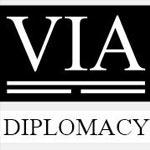
ViaDiplomacy Newsroom
ΠΕΡΙΣΣΟΤΕΡΑ ΑΘΡΑ
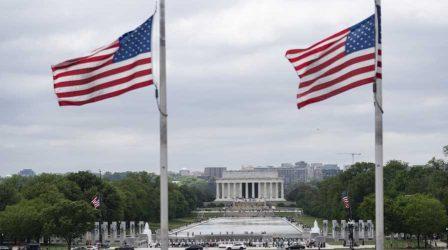
Οι ΗΠΑ ανοίγουν την πόρτα στην επιβολή δασμών σε φαρμακευτικά και ημιαγωγούς
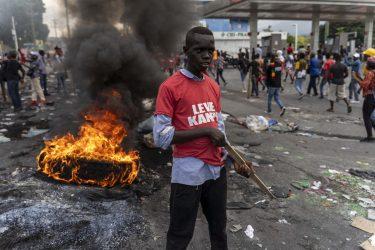
Η Αϊτή ενέκρινε έκτακτο «προϋπολογισμό πολέμου» καθώς συμμορίες ελέγχουν σχεδόν όλη την πρωτεύουσα
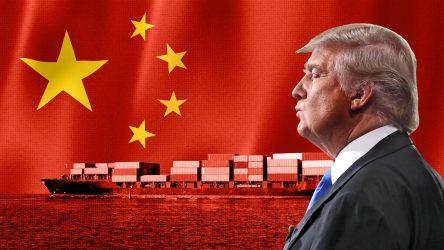
Υπουργός Οικονομικών ΗΠΑ: Θα κλειστεί μεγάλη συμφωνία με την Κίνα κάποια στιγμή
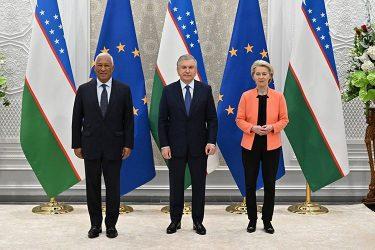
Η Άγκυρα αντιμετωπίζει διπλωματική ήττα καθώς τα κράτη της Κεντρικής Ασίας ορίζουν πρεσβευτές στην Κύπρο – Ρήγμα στον Τουρκικό Κόσμο
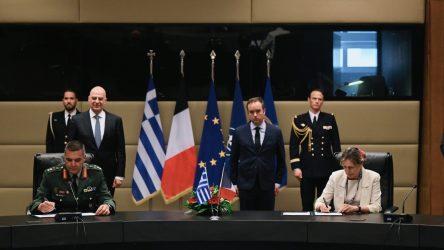
Γάλλος Υπουργός Άμυνας: Θα μπορούσε να δημιουργηθεί μια θυγατρική της Naval Group στην Ελλάδα
